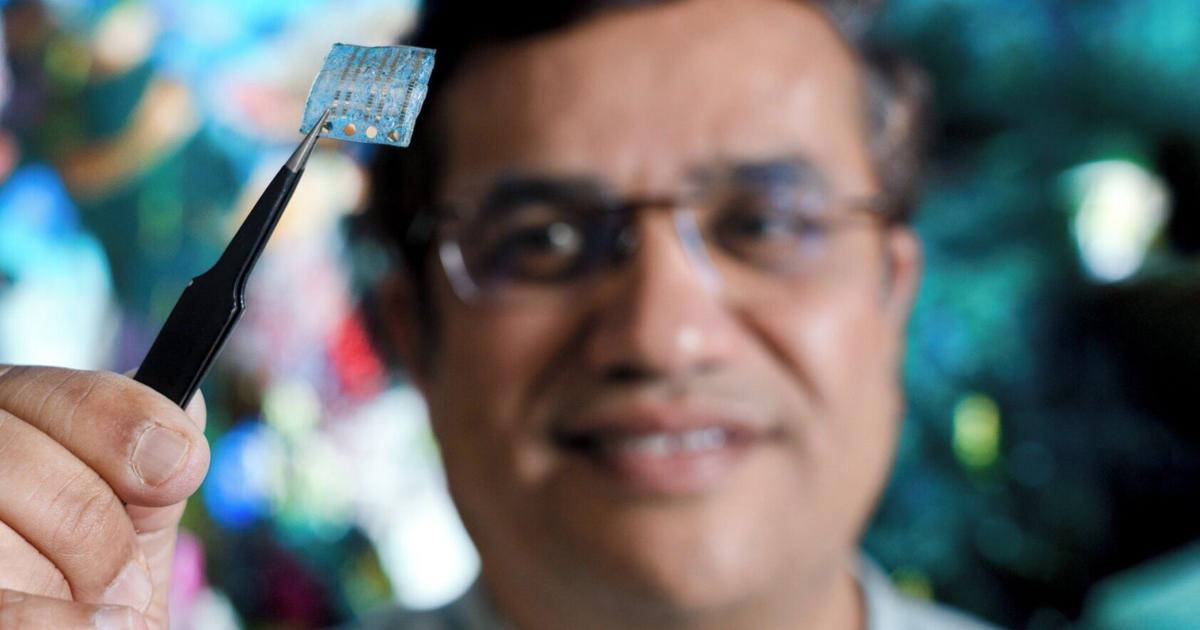Shellfish leftovers have been successfully turned into potentially lifesaving wearable health sensors.
The prototype electronic device using a material made from seafood waste – such as lobster shells – paves the way for safe, flexible and sustainable devices, according to the Australian research team.
They showed that chitosan – a naturally derived, biodegradable material recovered from seafood waste including Red Claw shrimp, Rock lobster and squid – can be used with a high-performance conducting polymer film to create a new class of wearable electronic transistors.
The team from Queensland University of Technology (QUT) say their research, published in the journal Small Structures, is a step towards the development of wearable biocompatible biosensors that could monitor health in real-time without compromising comfort, safety or the environment.
Study leader Professor Prashant Sonar says the study was a “significant step” in building the next generation of wearable biomedical devices.
He said: “We have successfully shown that a film made from chitosan, a biopolymer derived from seafood waste, when coated with a conducting polymer, can act as the foundation for flexible transistors.
A device with crab shell. (QUT via SWNS)
“Not only do these devices work electrically, they are biocompatible, meaning they can safely interact with human cells, and they are mechanically strong enough to withstand bending and movement.
“That makes them ideal for future wearable health monitors.”
He explained that chitosan is already widely used in biomedical applications because it is non-toxic and biodegradable.
Using a process called vapor phase polymerization (VPP), Sonar said the research team was able to create a “bendable, skin-friendly” electronic film that maintained high performance even when flexed hundreds of times.
Study first author Chattarika Khamhanglit, a PhD researcher at QUT, says the devices showed “remarkable” mechanical resilience and durability.
(Photo by Kindel Media via Pexels)
She added, “Our prototype retained up to 97% of its electrical performance after repeated bending tests.
“This gives us confidence that these materials could be used in real-world applications such as health sensors that move with the body without losing accuracy.”
Sonar says biocompatible transistors could become the foundation for wearable biosensors that monitor vital signs or detect disease biomarkers.
He added, “Imagine a lightweight patch that can comfortably adhere to the skin and provide continuous, accurate health information to doctors or patients.
“This work shows that such devices can be made from safe, sustainable materials sourced from nature.”
He said the next stage of the research will focus on integrating the chitosan-based devices into biosensing platforms for specific health applications, including non-invasive monitoring and point-of-care diagnostics.
